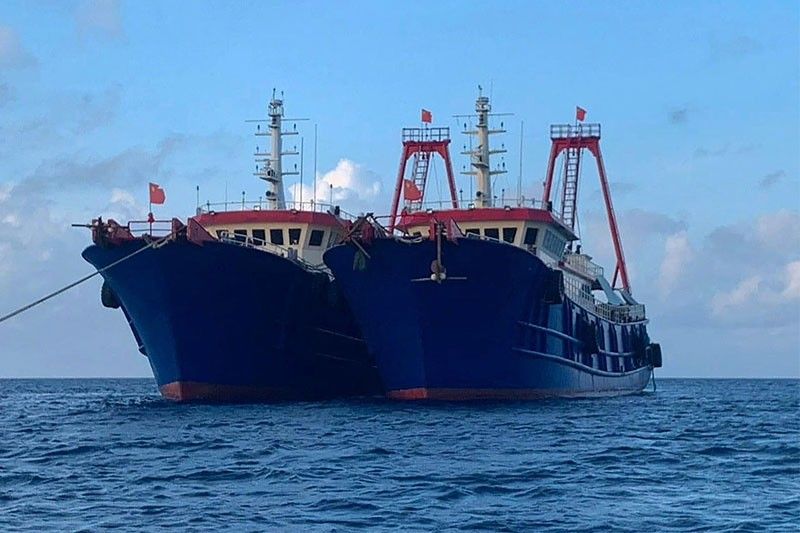US lays out case against 'unlawful' China maritime claims

WASHINGTON, United States — The United States on Wednesday laid out its most detailed case yet against Beijing's "unlawful" claims in the South China Sea, rejecting both the geographic and historic bases for its vast, divisive map.
In a 47-page research paper, the State Department's Bureau of Oceans and International Environmental and Scientific Affairs said China had no basis under international law for claims that have put Beijing on a collision course with the Philippines, Vietnam and other Southeast Asian nations.
"The overall effect of these maritime claims is that the PRC unlawfully claims sovereignty or some form of exclusive jurisdiction over most of the South China Sea," the paper said, referring to the People's Republic of China.
"These claims gravely undermine the rule of law in the oceans and numerous universally recognized provisions of international law reflected in the Convention," it said, referring to a 1982 UN treaty on the law of the sea ratified by China — but not the United States.
Releasing the study, a State Department statement called again on Beijing "to cease its unlawful and coercive activities in the South China Sea."
The paper is an update of a 2014 study that similarly disputed the so-called "nine-dash line" that forms the basis for much of Beijing's stance.
In 2016, an international court sided with the Philippines in its complaints over China's claims. Beijing replied by offering new justifications, including saying that China had "historic rights" over the area.
The State Department paper said that such historical-based claims had "no legal basis" and that China had not offered specifics.
It also took issue with geographic justifications for China's claims, saying that more than 100 features Beijing highlights in the South China Sea are submerged by water during high tide and therefore are "beyond the lawful limits of any state's territorial sea."
Beijing cites such geographic features to claim four "island groups," which the State Department study said did not meet criteria for baselines under the UN convention.
The report was issued as the United States increasingly challenges China on the global stage, identifying the rising communist power as its chief long-term threat.
In 2020, then-secretary of state Mike Pompeo explicitly backed claims of Southeast Asian nations in the South China Sea, going beyond the past US stance of challenging China without taking an issue on which countries were right.
The South China Sea is home to valuable oil and gas deposits and shipping lanes, and Beijing's neighbors have frequently voiced concern that their giant neighbor was seeking to expand its reach.
- Latest
- Trending

































